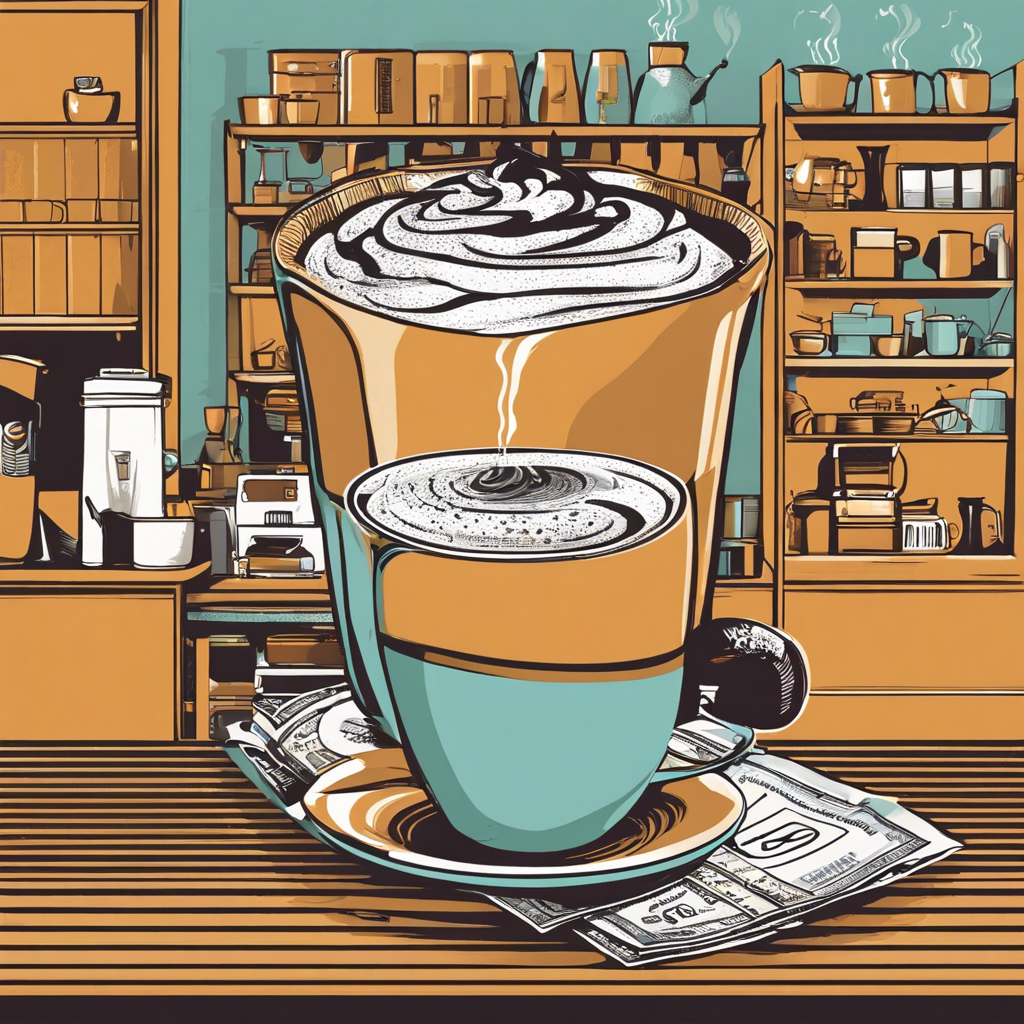We all have small expenses that we consider insignificant in our daily lives. A cup of coffee, a snack, or a taxi ride may not seem like a big deal at the moment, but these little purchases can add up quickly and impact our financial health. It’s time to shine a light on these small expenses and understand how they can cost us in the long run.
Let’s start with that daily cup of coffee. A $5 coffee may not seem like a budget-breaker, but if you buy it every weekday, that’s $25 a week and roughly $100 a month. Over a year, that’s $1,200 spent on coffee alone! Now, consider if you buy a snack with your coffee a few times a week, or perhaps a bottle of water or a soda from the vending machine. These additional purchases can easily bring your monthly expenses to $150 or more. That’s a significant amount of money that could be saved or invested.
Another example is transportation. Opting for a taxi or rideshare service instead of taking public transportation can quickly add up. For instance, if you take a $15 ride a few times a week, that’s an additional $180 a month. Over a year, that’s over $2,000 spent on convenience. The same goes for food delivery fees and tips—those $3-$5 charges for the convenience of having food brought to your door can add up if you’re not careful.
It’s easy to see how these small expenses can cost us hundreds, if not thousands, of dollars a year. So, what can we do about it? Well, it’s all about being mindful and making informed choices. Instead of buying coffee every day, invest in a good coffee maker and make your morning brew at home. Pack a snack from home instead of relying on convenience stores.
Being mindful of these small expenses doesn’t mean you have to deprive yourself of everything. It’s about finding a balance and being intentional with your spending. Perhaps you allocate a certain amount of money each month for your daily coffee or taxi rides, and once it’s spent, you switch to more cost-effective alternatives.
By taking control of these small expenses, you can free up money in your budget for things that truly matter to you. It could be saving for a dream vacation, investing in your retirement, or simply having more financial security. So, the next time you reach for that coffee, remember—it’s not just a small expense; it’s a part of a larger financial picture.
Now, let’s dive a little deeper and look at some other common small expenses that can add up over time. Entertainment subscriptions are a prime example. That $10 a month for a streaming service may not seem like much, but if you have multiple subscriptions, you could be spending upwards of $50 a month. That’s $600 a year! Similarly, gym memberships can be a significant expense, especially if you’re not using them regularly.
Another area to consider is impulse purchases. Those small items you grab while waiting in line at the store—the magazines, the snacks, or the little gadgets—can quickly add up. Before you know it, you’ve spent $20 on things you didn’t need. The same goes for online shopping. It’s incredibly easy to make purchases with just a few clicks, and those purchases can add up fast, especially when you factor in shipping costs.
Let’s also talk about personal care expenses. Manicures, haircuts, and salon visits can cost a pretty penny, especially if you go to a high-end salon. For example, a $40 haircut every month will cost you $480 a year. That’s money that could be put to better use. Instead, consider spacing out your salon visits or trying at-home alternatives in between professional services.
Lastly, let’s not forget about those hidden fees. Bank fees, late payment fees, and overdraft charges can be incredibly costly. For instance, a $35 overdraft fee can quickly turn into a much larger expense if you don’t keep an eye on your balance. It’s important to be vigilant and understand the fees associated with your bank accounts, credit cards, and other services.
By being aware of these small expenses and taking control of your spending, you can make a significant positive impact on your financial well-being. So, the next time you’re about to swipe your card for that coffee or taxi ride, pause for a moment and consider if it aligns with your financial goals. Remember, it’s the little expenses that can make a big difference in the long run.

